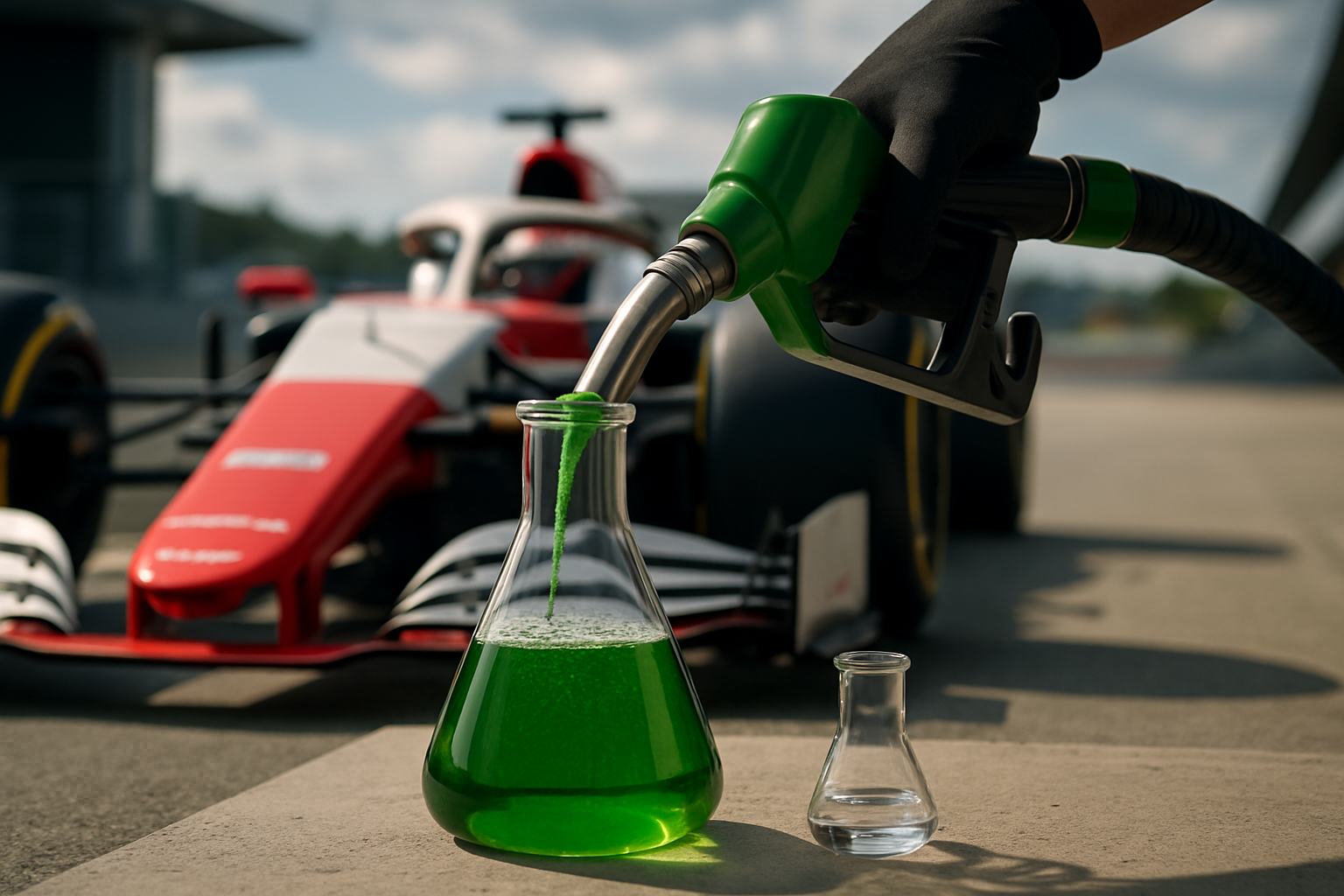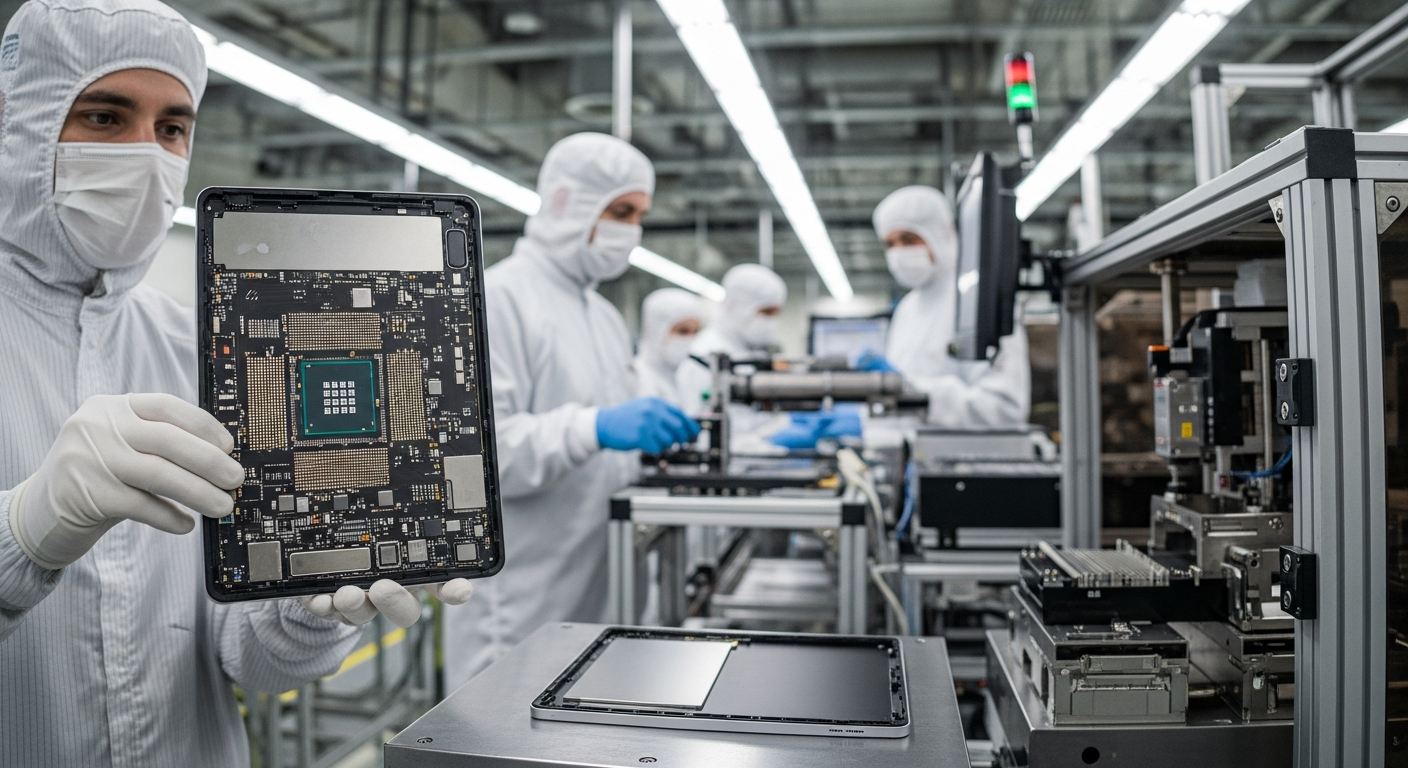Synthetic Fuels: The Unsung Hero of Sustainable Motorsports
In a world increasingly focused on electrification, an unexpected contender is emerging in the race for sustainable motorsports: synthetic fuels. This innovative solution promises to revolutionize high-performance racing while dramatically reducing carbon emissions. But what exactly are synthetic fuels, and how could they reshape the future of motorsports? Let's dive into the high-octane world of this groundbreaking technology.

The Chemistry Behind Synthetic Fuels
At its core, the production of synthetic fuels involves a series of chemical reactions that mimic the natural process of fossil fuel formation, but at a drastically accelerated rate. The first step is electrolysis, where water is split into hydrogen and oxygen using renewable electricity. The hydrogen is then combined with carbon dioxide, which can be captured from industrial processes or directly from the air, in a process called the Fischer-Tropsch synthesis. This reaction produces a mixture of hydrocarbons that can be refined into various fuel types, including gasoline, diesel, and jet fuel.
Advantages for Motorsports
Synthetic fuels offer several key advantages that make them particularly attractive for motorsports applications. Firstly, they can be designed to have specific properties that enhance engine performance, such as higher octane ratings or improved cold-start characteristics. This level of customization allows race teams to fine-tune their fuel to match the demands of different circuits and racing conditions.
Moreover, synthetic fuels are compatible with existing internal combustion engines, requiring little to no modifications. This means that classic race cars and vintage vehicles can continue to participate in motorsports events without the need for extensive and costly conversions. For racing series that pride themselves on heritage and tradition, this is a significant benefit.
Environmental Impact and Sustainability
One of the most compelling arguments for synthetic fuels in motorsports is their potential for carbon neutrality. When burned, these fuels release CO2 into the atmosphere. However, since this CO2 was originally captured during the fuel production process, the net emissions can theoretically be zero. This closed carbon cycle could allow motorsports to dramatically reduce its environmental footprint without sacrificing the excitement and spectacle that fans love.
Additionally, the production of synthetic fuels can be integrated with renewable energy infrastructure. Excess electricity from wind or solar farms during low-demand periods can be used to power the electrolysis process, effectively storing that energy in liquid form. This synergy between renewable energy and fuel production could help stabilize power grids and make better use of intermittent energy sources.
Challenges and Hurdles
Despite their promise, synthetic fuels face several challenges on the road to widespread adoption in motorsports. The primary obstacle is cost. Currently, producing synthetic fuels is significantly more expensive than refining traditional fossil fuels. This price difference is a major barrier, especially for smaller racing teams and grassroots motorsports events.
Another challenge is the energy efficiency of the production process. Converting electricity into liquid fuel and then back into mechanical energy in an engine is inherently less efficient than using that electricity directly in an electric vehicle. Critics argue that this inefficiency makes synthetic fuels a less viable long-term solution compared to full electrification.
Real-World Applications and Pilot Projects
Several high-profile motorsports organizations are already exploring the potential of synthetic fuels. Formula 1, for instance, has announced plans to introduce 100% sustainable fuels by 2026 as part of its commitment to becoming carbon neutral by 2030. This move could set a precedent for other racing series to follow.
In the world of endurance racing, Porsche has been at the forefront of synthetic fuel development. The German automaker has invested in a pilot plant in Chile that uses wind energy to produce synthetic fuels. These e-fuels are being tested in both road cars and racing vehicles, with promising results in terms of performance and emissions reduction.
The Future of Synthetic Fuels in Motorsports
As technology advances and production scales up, the cost of synthetic fuels is expected to decrease, making them more competitive with traditional fuels. This could lead to a gradual transition in various motorsports categories, starting with high-end racing series and eventually trickling down to amateur and club-level events.
The adoption of synthetic fuels could also have broader implications for the automotive industry. Lessons learned from motorsports applications could accelerate the development and refinement of synthetic fuels for road cars, potentially offering a pathway to reduce emissions from the existing fleet of vehicles worldwide.
In conclusion, synthetic fuels represent a fascinating intersection of chemistry, engineering, and environmental science that could reshape the future of motorsports. While challenges remain, the potential benefits in terms of performance, sustainability, and preservation of motorsport heritage make this technology an exciting prospect for racing enthusiasts and environmentalists alike. As the world of motorsports continues to evolve, synthetic fuels may well prove to be the key to keeping the spirit of racing alive in a carbon-conscious world.






